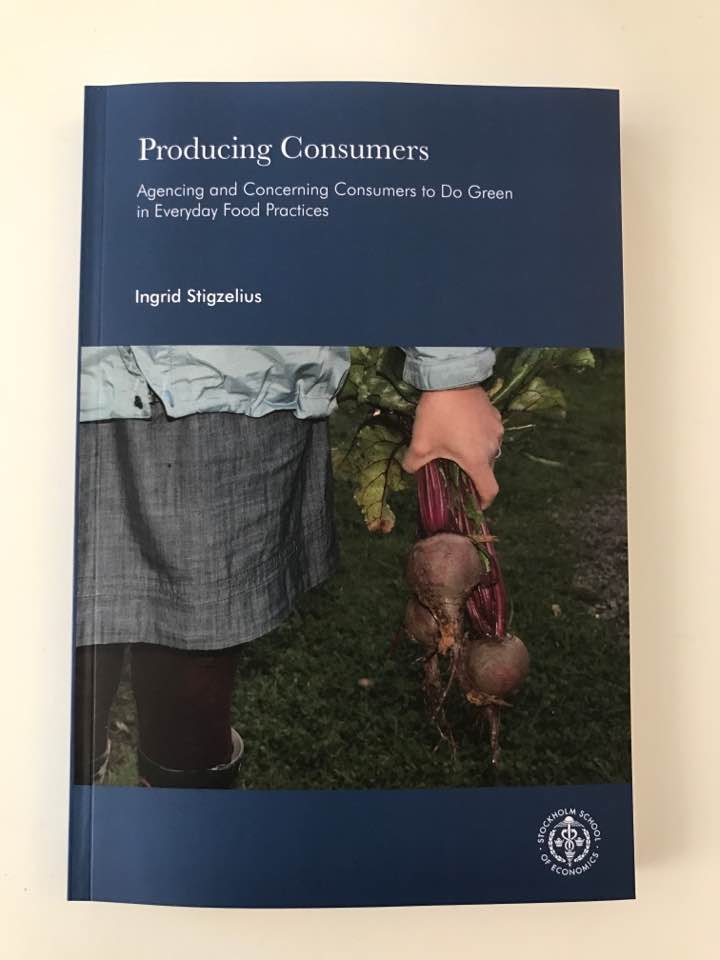“Worries and concerns can be drivers of change”
Interview by Emilie Eliasson Hövmöller, published March 13 2017.
What do you make of your research results?
My research shows that consumer choice and green consumption goes beyond the consumer; we need to acknowledge all the different decisions and efforts that go into making food practices more or less green, for example decisions by policy makers, producers and store managers that frames consumer choices. For the individual consumers, it is difficult to determine how green the end result is and whether they make the right decisions. The consumer, however, plays a crucial role in changing practices by questioning what is taken for granted and by bringing about new meanings to green food.
In relation to this, I have for example studied how practice changes took place in Swedish kitchens during and after the Second World War. This was a time when we went from a restricted food consumption based on the rationing system, to gradually becoming accustomed to more convenient ways of cooking. The study shows that changes of kitchen practices was mainly driven by societal concerns demanding new solutions, rather than by individual motives. Domestic work generally became difficult to manage when housewives entered the labor market, which demanded new convenient kitchen solutions. In light of the current societal concerns for more energy-efficient, waste-free and climate friendly solutions, market actors would need to accommodate their market offerings to achieve similar changes in the kitchen.
How are your research results used?
My results suggest that we need to direct more attention to the socio-material structures that surround the consumer, rather than their personal motivations and attitudes. For example, unsustainable choices are promoted in everything from how food is positioned on store shelves to how emissions from air travel are taxed. The acceptance of unsustainable structures also becomes enforced in traditional and social media by reproducing what is seen as normal. We need to ask ourselves how we can promote more sustainable practices in the way markets and sites of consumption are organized.
What are your thoughts on the future? Are you concerned about the climate?
I am the worrying kind of person but this does not necessarily have to be a bad thing, since the worries that so many of us feel today can be a driver for change. Being concerned is a prerequisite for raised awareness of public interests, such as climate change. If we become allied in our concerns as consumers and citizens, it could in turn encourage politicians and business leaders to make bolder and more responsible decisions.
